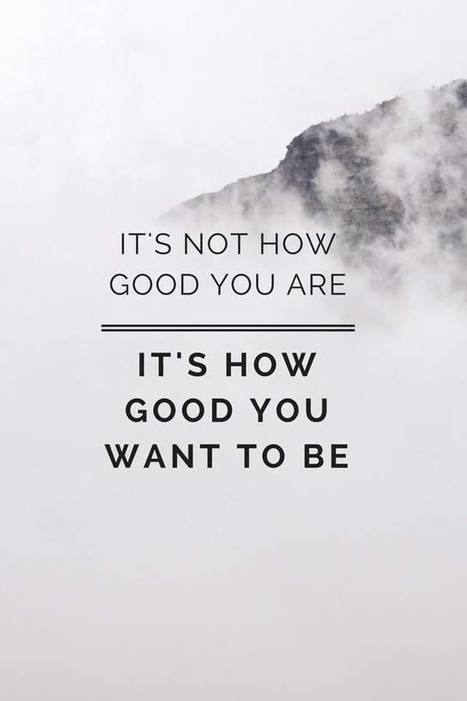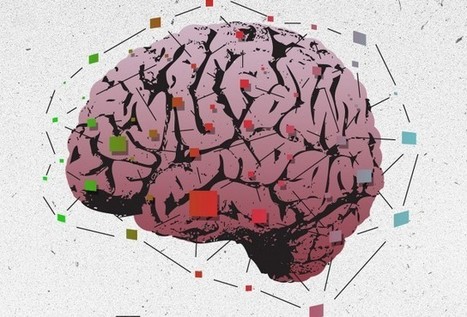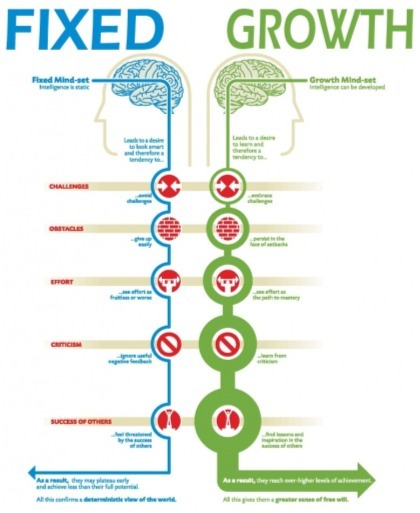"In one world, effort is a bad thing. It, like failure, means you’re not smart or talented. If you were, you wouldn’t need effort. In the other world, effort is what makes you smart or talented." Carol Dweck
|
|
Scooped by Beth Dichter |
Carol Dweck has been studying mindset for many years, and this post shares information from her work. There is a discussion on growth mindset and fixed mindset as well as a discussion on how a growth mindset can help one learn (which also shares information from some of her research).
This is followed by a list of 25 ways to help students develop a growth mindset. Five are listed below.
* Acknowledge and embrace imperfections.
* View challenges as opportunities.
* Follow the research on brain plasticity.
* Value the process over the end result.
* Provide regular opportunities for reflection.
What would happen if your class or your school chose one suggestion a week and had it become a part of the school culture? Would students learn more about growth mindset and be more willing to take risks? To understand that everyone fails at different points in their life, but they have the ability to move on (and potentially share information about people who have failed and led a successful life)? What are your thoughts on this subject?
And remember to click through to the post to see all 25 suggestions (as well as links to additional resources).



 Your new post is loading...
Your new post is loading...






















Thx Beth Dichter
There is very useful listing how to improve understanding about growth mindset in classroom.